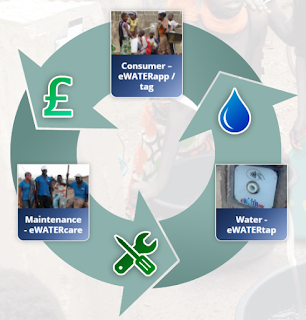My final post
In my final blog I will be looking at the women run water centers in Nigeria, this program helps women gain independence and an income whist supplying their families and village with safe drinking water. This scheme has been created in response to the UN’s (United Nation) Sustainable Development Goal of clean water and sanitation for all. These water centers are known as Sunlight Water Centers, they have been formed by a TechnoServe and Unilever partnership to bring affordable and safe water to the Nigerian rural public. Women have been the key focus of this scheme, as they choose, hire and train women to run the local water centers. This encourages the women to be local entrepreneurs and work as they have spare time since they no longer have to travel vast distances to collect water. The program has an acceptance process as the women have to be nominated, often by the head of their village, and then they undergo an interview process. This is all worth it as they receiv...

